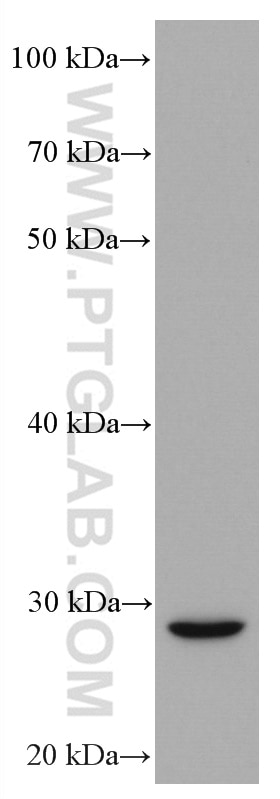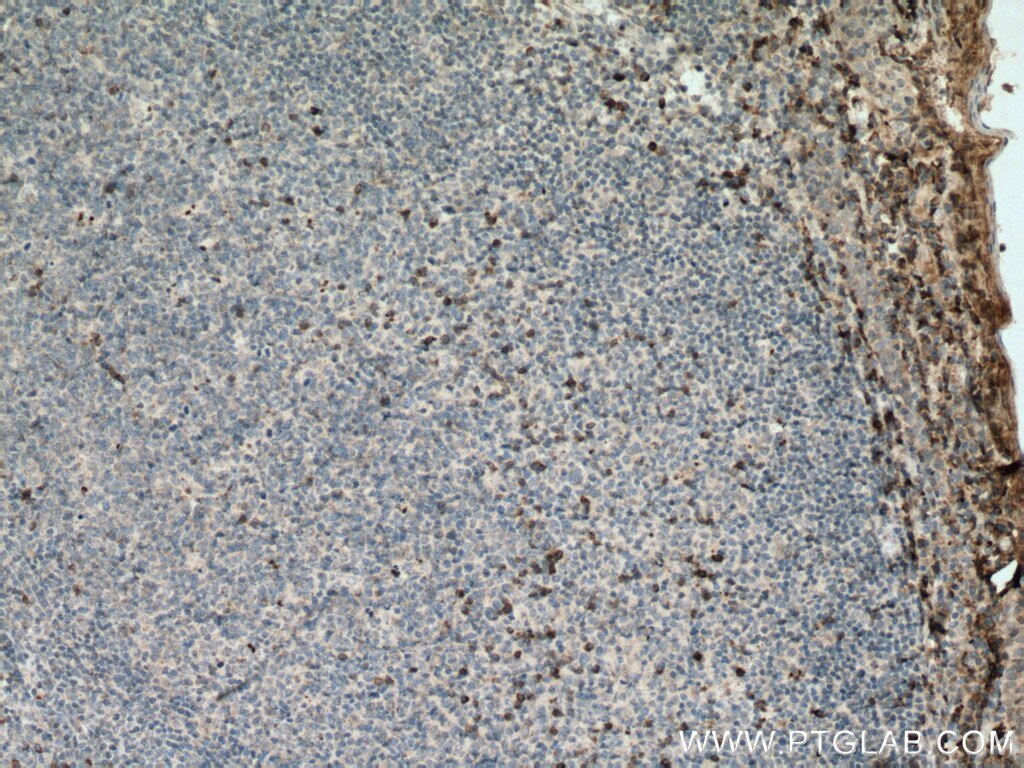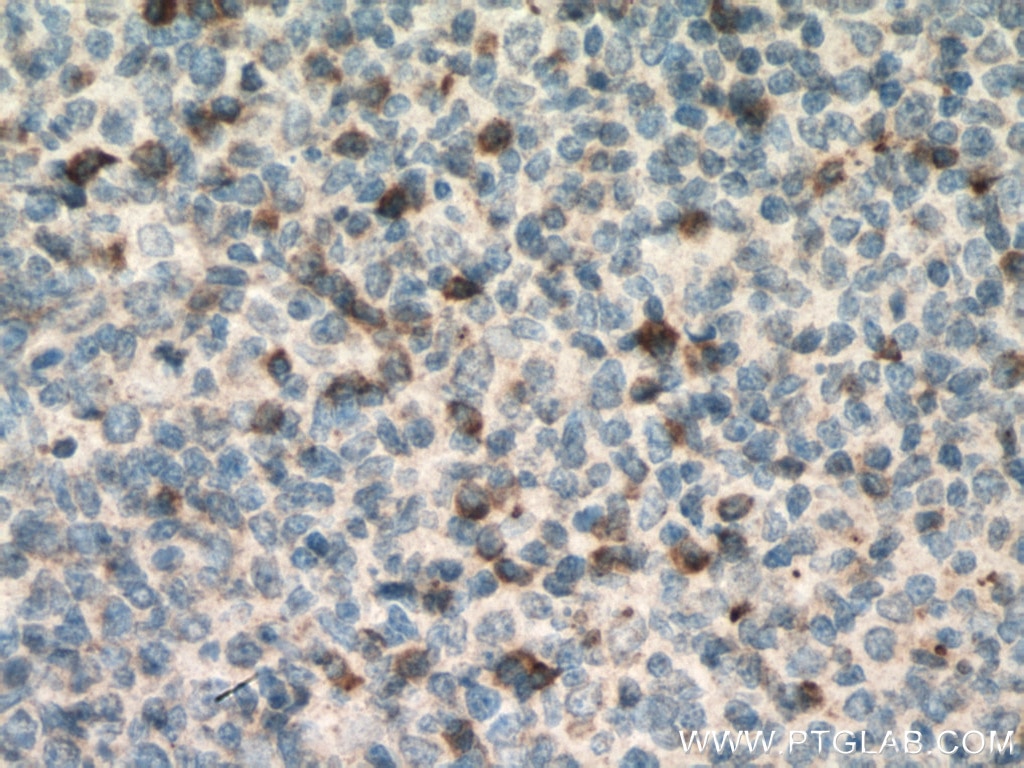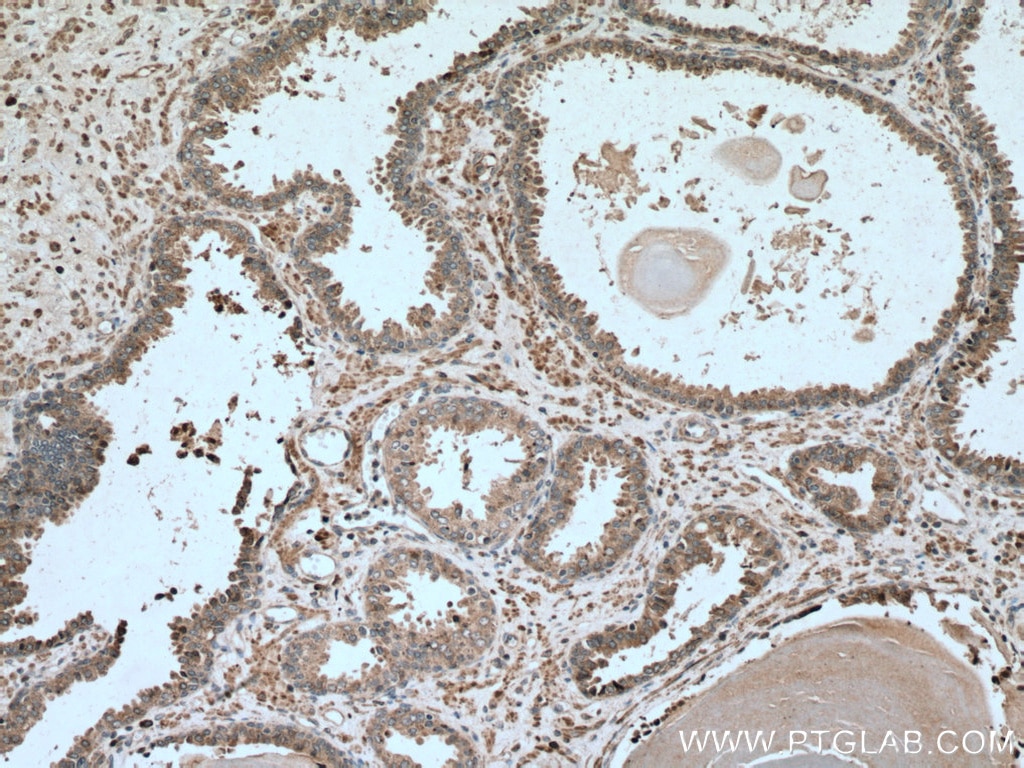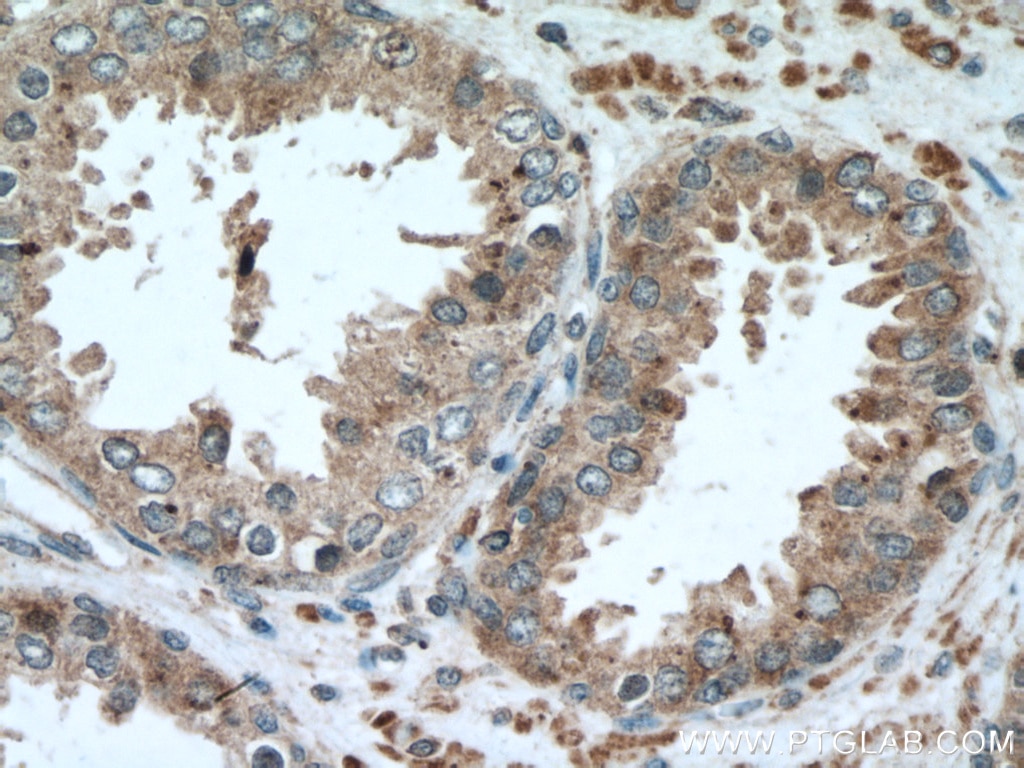TRAIL/CD253 Monoklonaler Antikörper
TRAIL/CD253 Monoklonal Antikörper für WB, IHC, ELISA
Wirt / Isotyp
Maus / IgG1
Getestete Reaktivität
human
Anwendung
WB, IHC, IF, ELISA
Konjugation
Unkonjugiert
CloneNo.
1B9B4
Kat-Nr. : 66756-1-Ig
Synonyme
Geprüfte Anwendungen
| Erfolgreiche Detektion in WB | humanes Milch-Gewebe |
| Erfolgreiche Detektion in IHC | humanes Tonsillitisgewebe, humanes Prostatakarzinomgewebe Hinweis: Antigendemaskierung mit TE-Puffer pH 9,0 empfohlen. (*) Wahlweise kann die Antigendemaskierung auch mit Citratpuffer pH 6,0 erfolgen. |
Empfohlene Verdünnung
| Anwendung | Verdünnung |
|---|---|
| Western Blot (WB) | WB : 1:500-1:2000 |
| Immunhistochemie (IHC) | IHC : 1:50-1:500 |
| It is recommended that this reagent should be titrated in each testing system to obtain optimal results. | |
| Sample-dependent, check data in validation data gallery | |
Veröffentlichte Anwendungen
| WB | See 1 publications below |
| IF | See 1 publications below |
Produktinformation
66756-1-Ig bindet in WB, IHC, IF, ELISA TRAIL/CD253 und zeigt Reaktivität mit human
| Getestete Reaktivität | human |
| In Publikationen genannte Reaktivität | human |
| Wirt / Isotyp | Maus / IgG1 |
| Klonalität | Monoklonal |
| Typ | Antikörper |
| Immunogen | TRAIL/CD253 fusion protein Ag25746 |
| Vollständiger Name | tumor necrosis factor (ligand) superfamily, member 10 |
| Berechnetes Molekulargewicht | 281 aa, 33 kDa |
| Beobachtetes Molekulargewicht | 28-30 kDa |
| GenBank-Zugangsnummer | BC032722 |
| Gene symbol | TRAIL |
| Gene ID (NCBI) | 8743 |
| Konjugation | Unkonjugiert |
| Form | Liquid |
| Reinigungsmethode | Protein-G-Reinigung |
| Lagerungspuffer | PBS with 0.02% sodium azide and 50% glycerol |
| Lagerungsbedingungen | Bei -20°C lagern. Nach dem Versand ein Jahr lang stabil Aliquotieren ist bei -20oC Lagerung nicht notwendig. 20ul Größen enthalten 0,1% BSA. |
Hintergrundinformationen
TNFSF10/TRAIL (tumor necrosis factor superfamily member 10) is a typical death ligand expressed on natural killer cells and cytotoxic T lymphocytes. This protein preferentially induces apoptosis in transformed and tumor cells, but does not appear to kill normal cells although it is expressed at a significant level in most normal tissues. TNFSF10 induces apoptotic cell death in cancer by binding to its functional death receptors, death receptor (DR) 4 (TNFRSF10A/TRAIL-R1) and DR5 (TNFRSF10B/TRAIL-R2) to activate the extrinsic apoptosis pathway. TRAIL also activates c-Jun N-terminal kinase (MAPK8/JNK) and the transcription factor nuclear factor-κB (NFκB). The binding of this protein to its receptors has been shown to trigger the activation of MAPK8/JNK, caspase 8, and caspase 3.
Protokolle
| PRODUKTSPEZIFISCHE PROTOKOLLE | |
|---|---|
| WB protocol for TRAIL/CD253 antibody 66756-1-Ig | Protokoll herunterladen |
| IHC protocol for TRAIL/CD253 antibody 66756-1-Ig | Protokoll herunterladenl |
| STANDARD-PROTOKOLLE | |
|---|---|
| Klicken Sie hier, um unsere Standardprotokolle anzuzeigen |
Publikationen
| Species | Application | Title |
|---|---|---|
Adv Healthc Mater TRAIL-Armed ER Nanosomes Induce Drastically Enhanced Apoptosis in Resistant Tumor in Combination with the Antagonist of IAPs (AZD5582). | ||
Cancers (Basel) Extracellular Vesicle Delivery of TRAIL Eradicates Resistant Tumor Growth in Combination with CDK Inhibition by Dinaciclib. | ||
Front Bioeng Biotechnol The inhibitory effect of human umbilical cord mesenchymal stem cells expressing anti-HAAH scFv-sTRAIL fusion protein on glioma |
